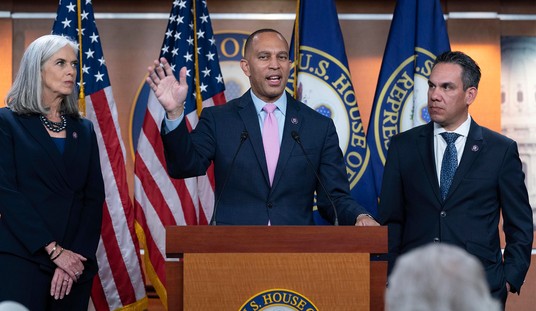From the Diaries…
Newt Gingrich is still leading Mitt Romney and Ron Paul in Iowa, and nationally among Tea Party voters. But like so many polls, the numbers aren’t what they seem. In fact, while it might look at first glance that the conservative grassroots are flocking to Gingrich, there are still too many Tea Partiers on the sidelines for comfort. In order to beat Obama next fall and avoid the kind of fractious performance delivered by conservatives in 2008, both Romney and Gingrich have a lot of work to do to energize the Tea Party movement (if that’s even possible).
What America needs is what the economic conservatives in the Tea Party movement want – reliable and bold fiscally-conservative leadership in Washington. On that front, both Romney and Gingrich are treated with a great deal of skepticism by large numbers of tea party members across the country.
True, some of them have stated that one or the other is acceptable. True, Cain’s supporters among the Tea Party have gone almost exclusively to Gingrich. However, some of that support overlaps with socially conservative voters that do not represent the driving force behind the larger movement. Accounting for that, what we’re left with at this point is a movement waiting to be moved.
Gingrich, who advocates the individual mandate, promoted Medicare Part D and TARP, and climate regulations, has become the anti-Romney by default as tea partiers, who are searching desperately for an alternative to the safe, slick father of RomneyCare. Romney’s poll numbers among tea party members, like his numbers generally, stay level as he struggles to connect both philosophically and emotionally with the grassroots.
Gingrich has clearly benefitted from the misfortune of others: as everyone else either imploded or kept stumbling, people kept cycling through the candidates, looking for an anti-Romney. The last one standing at the moment who is not Romney seems to be Newt, the lucky winner of the “Anyone but Romney” lottery.
His numbers also reflect something else: people projecting their hopes for a conservative champion onto Newt. A conservative champion he is not. No one inherently conservative, deep down inside, promotes such things as individual healthcare mandates. People have argued that he just talks about the idea, and that Romney actually implemented it. My response is: if Newt were in power, you’re telling me he wouldn’t have implemented such ideas? Others argue that Newt will be a tremendous debater against Obama. Remind me just what part of governing does debating fit in to? The last time Newt had a chance at governing and managing as Speaker, his own caucus, many of who came in on the power of the Contract with America, tried to depose of him a little over two years after he took the Speakership.
The trouble is that for all those who remember the Contract with America and the 1994 Republican Revolution, there are just as many if not more who will dig deeper into his record and not be comfortable with the progressive positions he’s taken on a range of issues over the last 15 years; yes, progressive, as in statist. Romney is just hoping that his presentation, general credibility and perceived electability will force the grassroots into an indefensible choice between him and Obama.
Essentially, you have two candidates who can’t accuse each other of flip flopping that have only tacit acceptance from a minority of the very movement that was the driving force in American politics in 2010.
That leaves the race for President wide open when it comes to economic conservatives. Gingrich and Romney have a lot of work to do to be responsive to the tea party movement and other conservatives demanding bold moves to reduce government spending and systemic entitlement reform. If they don’t, 2012 is going to resemble 2008 where there was an enthusiasm deficit from the conservative grassroots and consequently no excitement for the nominee.
Romney and Gingrich have to find avenues to create a comfort level with economic conservatives who doubt their commitment and credentials. They need to adopt platforms that will be bold, fresh and respond to the urgent need for systemic change in Washington including entitlement reform, deficit reductions and significant spending restraint. They are going to have to do the tough spade work with the leaders of the movement attending meetings and rallies to help increase confidence and stoke a sense of outrage about the President’s policies.
More than anything, they have to earn the trust of people who genuinely believe, and with good reason, that the very essence of America is slowly slipping away. Both Gingrich and Romney have a long way to go before any poll or pundit can credibly say that the Tea Party is on board with any campaign.
If they fail to convince the grassroots that they are worthy of support, we may be left with a campaign bereft of ideas and passion for anything other than defeating the incumbent President. It may in the end be effective out of pure desperation, but it will result in a weaker Presidency for the last man standing.














Join the conversation as a VIP Member